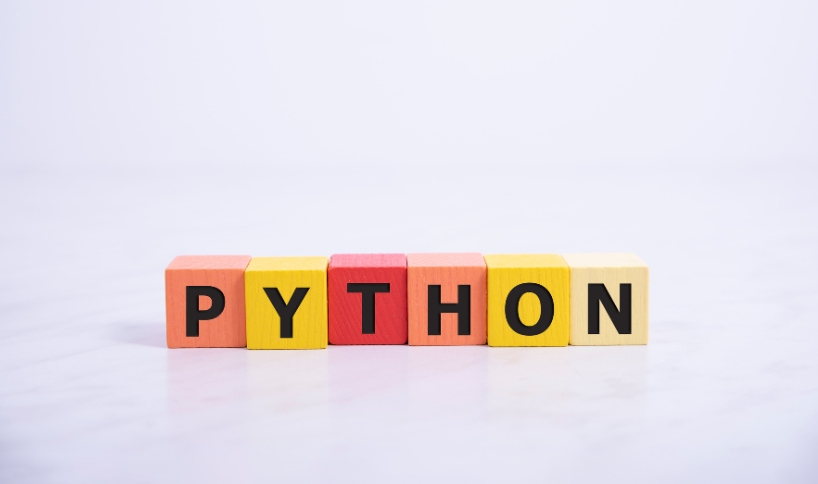We are in the digital age, and learning programming is essential. Among the myriad of programming languages available, Python stands out as an ideal choice for beginners. Renowned for its simplicity and versatility, Python has become the go-to language for new programmers. Let’s explore why Python is perfect for beginners and that you must enroll in our Online Python Course for Beginners
.
Why Choose Python?
1. Simple and Readable Syntax:
Python’s syntax is designed to be intuitive and mirrors human language, making it easier to learn and understand. Unlike other languages that use complex punctuation and structure, Python uses indentation to define code blocks, which improves readability and reduces the learning curve.
2. Versatility:
Python can be used for a variety of applications, including web development, data analysis, artificial intelligence, machine learning, and more. This versatility means that once you learn Python, you can apply your skills in many different fields.
3. Extensive Libraries and Frameworks:
Python boasts a rich set of libraries and frameworks that simplify many programming tasks. Libraries like Pandas and NumPy are essential for data analysis, while Django and Flask are popular for web development. These tools help streamline the development process, allowing you to focus on solving problems rather than writing code from scratch. Online Python Course for Beginners
4. Strong Community Support:
Python has a strong community support. There is a large community of programmers who keep contributing to tutorials, forums, and documentation. This means that when you encounter a problem, there’s a high chance someone else has already solved it, and you can find solutions and guidance easily.
Getting Started with Python
1. Setting Up Your Environment:
To start coding in Python, you need to set up your programming environment. This involves downloading and installing Python from the official website (Python.org) and choosing an Integrated Development Environment (IDE) like PyCharm, VS Code, or even the simple IDLE that comes with Python.
2. Learning the Basics:
Start with understanding basic concepts such as variables, data types (strings, integers, floats), and operators. Practice writing simple programs that perform basic calculations or manipulate strings. Here’s a simple example: Online Python Course for Beginners
```Python
# This is a comment
print("Hello, World!")
```
This code prints "Hello, World!" to the screen and introduces you to the print function and comments.
3. Control Structures:
Next, learn about control structures such as loops and conditional statements. These are fundamental in controlling the flow of your program. For example:
```Python
# Conditional statement
x = 10
if x > 5:
print("x is greater than 5")
# Loop
for i in range(5):
print(i)
```
4. Functions and Modules:
Functions help in breaking down your code into manageable pieces. Learn how to define and call functions, and how to use modules to organize your code. Here’s a simple function example:
```Python
def greet(name):
return f"Hello, {name}!"
print(greet("Alice"))
```
5. Working with Data:
Learn how to handle different data structures such as lists, tuples, dictionaries, and sets. These are crucial for storing and organizing data. Here’s how you can use a dictionary:
```Python
student = {
"name": "John",
"age": 21,
"courses": ["Math", "CompSci"]
}
print(student["name"])
```
6. Practice, Practice, Practice:
Practice programming as much as you can as it the only best way to learn. Work on small projects that interest you. This could be anything from a simple calculator to a basic web scraper. The more you practice, the more comfortable you will become with the syntax and concepts. Online Python Course for Beginners
7. Explore Advanced Topics:
Once you’re comfortable with the basics, start exploring more advanced topics like object-oriented programming (OOP), file handling, and libraries for data manipulation and visualization.
Resources for Learning Python
There are countless resources available for learning Python. Here are a few to get you started:
- Online Courses: We at Ignitepad offer comprehensive Online Python Course for Beginners.
- Books: "Automate the Boring Stuff with Python" by Al Sweigart and "Python Crash Course" by Eric Matthes are excellent books for beginners.
- Interactive Platforms: Platforms like Ignitepad provide interactive Python tutorials that allow you to code within your browser.
- Community and Forums: Join communities like Stack Overflow, Reddit’s r/learnPython, and the Python Discord server to connect with other learners and experienced developers.
Conclusion
Learning Python opens up a world of opportunities. Its simplicity and versatility make it an excellent starting point for anyone interested in programming. By following this guide and utilizing the available resources, you can embark on your programming journey with confidence.
Enroll now in our Online Python Course for Beginners and embark on your coding journey!


